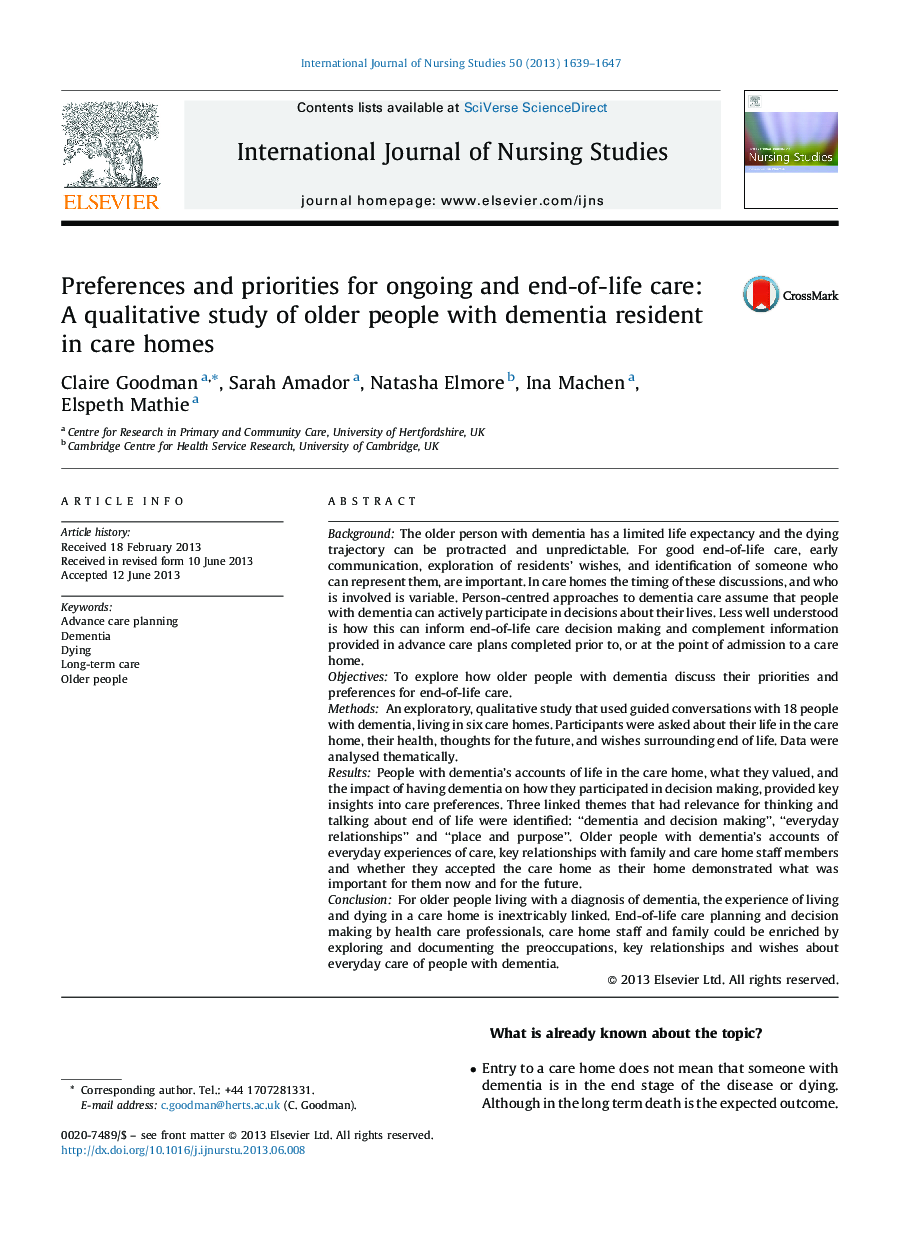| Article ID | Journal | Published Year | Pages | File Type |
|---|---|---|---|---|
| 1076192 | International Journal of Nursing Studies | 2013 | 9 Pages |
BackgroundThe older person with dementia has a limited life expectancy and the dying trajectory can be protracted and unpredictable. For good end-of-life care, early communication, exploration of residents’ wishes, and identification of someone who can represent them, are important. In care homes the timing of these discussions, and who is involved is variable. Person-centred approaches to dementia care assume that people with dementia can actively participate in decisions about their lives. Less well understood is how this can inform end-of-life care decision making and complement information provided in advance care plans completed prior to, or at the point of admission to a care home.ObjectivesTo explore how older people with dementia discuss their priorities and preferences for end-of-life care.MethodsAn exploratory, qualitative study that used guided conversations with 18 people with dementia, living in six care homes. Participants were asked about their life in the care home, their health, thoughts for the future, and wishes surrounding end of life. Data were analysed thematically.ResultsPeople with dementia's accounts of life in the care home, what they valued, and the impact of having dementia on how they participated in decision making, provided key insights into care preferences. Three linked themes that had relevance for thinking and talking about end of life were identified: “dementia and decision making”, “everyday relationships” and “place and purpose”. Older people with dementia's accounts of everyday experiences of care, key relationships with family and care home staff members and whether they accepted the care home as their home demonstrated what was important for them now and for the future.ConclusionFor older people living with a diagnosis of dementia, the experience of living and dying in a care home is inextricably linked. End-of-life care planning and decision making by health care professionals, care home staff and family could be enriched by exploring and documenting the preoccupations, key relationships and wishes about everyday care of people with dementia.
